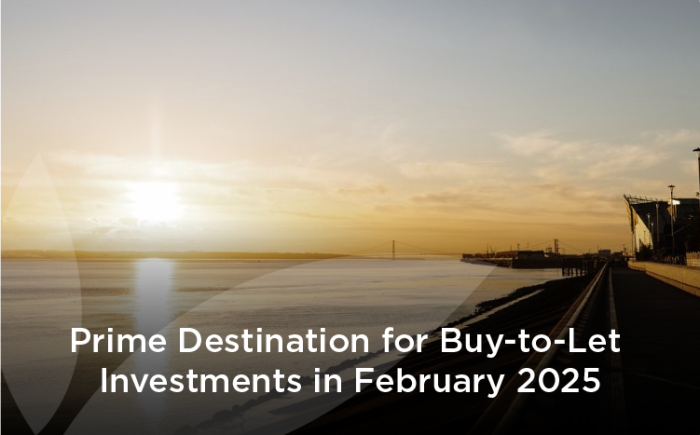.png)
As of February 2025, Hull's property market continues to exhibit resilience and growth, reflecting broader regional trends in Yorkshire and The Humber. This update delves into the latest statistics, emerging trends, and factors influencing Hull's real estate landscape.
Current Market Overview
In November 2024, the average house price in Kingston upon Hull reached £145,000, marking a 6.6% increase from £136,000 in November 2023. This growth surpasses the regional average in Yorkshire and The Humber, which saw a 5.7% rise during the same period.
Property types have experienced varying degrees of appreciation:
- Detached Properties: Average price of £263,000.
- Semi-Detached Properties: Average price of £164,000.
- Terraced Properties: Average price of £128,000.
- Flats and Maisonettes: Average price of £96,000.
First-time buyers are entering the market at an average price point of £133,000, a 6.8% increase from the previous year. For those purchasing with a mortgage, the average price stands at £150,000, reflecting a 6.7% rise year-over-year.
Rental Market Dynamics
The rental sector in Hull is also experiencing notable activity. As of December 2024, the average monthly private rent was £627, up from £570 in December 2023, representing a 10.1% increase. This surge outpaces the regional growth in Yorkshire and The Humber, which recorded a 5.4% rise in the same timeframe (source).
Rental increases by property type include:
- Flats and Maisonettes: 10.3% increase.
- Detached Properties: 9.5% increase.
By bedroom count, the average rents are:
- One Bedroom: £449
- Two Bedrooms: £557
- Three Bedrooms: £670
- Four or More Bedrooms: £900
Market Activity and Sales Duration
Properties in Hull are currently averaging 15 weeks on the market before sale. The average asking price is £163,531, with a slight decrease of 2.5% over the past six months. Detached houses command higher prices, averaging £285,370, while flats are listed at an average of £77,333 (source).
Emerging Trends and Future Outlook
Several key trends are shaping Hull's property market as we progress through 2025:
- Sustained Rental Demand: Hull's affordability and expanding employment opportunities continue to attract renters, particularly young professionals and families. Areas such as the city centre, Old Town, and the Avenues are witnessing heightened demand for well-maintained flats and family homes.
- Energy Efficiency Prioritisation: With a growing emphasis on sustainability, properties boasting strong energy performance ratings are increasingly sought after. Investments in energy-efficient upgrades, such as enhanced insulation or the installation of solar panels, can significantly enhance a property's appeal to eco-conscious buyers and tenants.
- Stable Property Prices: Unlike the volatility observed in some UK cities, Hull's property prices are expected to remain stable, offering a reliable option for investors. This stability, coupled with attractive rental yields, positions Hull as a favourable choice for property investment in 2025.
Challenges Ahead
Despite the positive indicators, Hull's property market faces several challenges:
- Interest Rate Fluctuations: Rising interest rates can impact mortgage affordability, potentially deterring prospective buyers and affecting overall market momentum.
- Housing Supply Constraints: Limited housing stock can lead to increased competition among buyers, driving prices upward and potentially sidelining first-time buyers.
- Affordability Issues: While Hull remains more affordable than many UK cities, continuous price increases may pose challenges for local residents, particularly those seeking to enter the housing market.
Strategic Recommendations for Stakeholders
For those navigating Hull's property market, the following strategies may prove beneficial:
- For Sellers: Emphasise energy-efficient features and the property's proximity to local amenities in marketing materials to attract discerning buyers.
- For Buyers: Explore emerging neighbourhoods that offer growth potential and consider properties requiring minor renovations, which may be priced more competitively.
- For Investors: Focus on areas with strong rental demand and consider diversifying portfolios to include energy-efficient properties, which are likely to command higher rents and attract long-term tenants.
Conclusion
Hull's property market in February 2025 presents a landscape of growth and opportunity, underpinned by rising property values and a robust rental sector. While challenges persist, strategic planning and informed decision-making can enable stakeholders to capitalise on the favourable conditions prevailing in Hull's real estate market.


-700x435.jpg)
